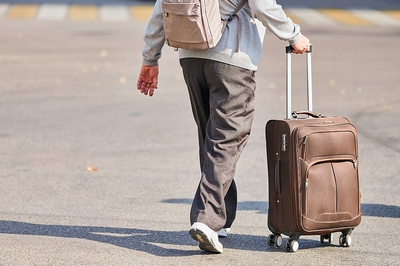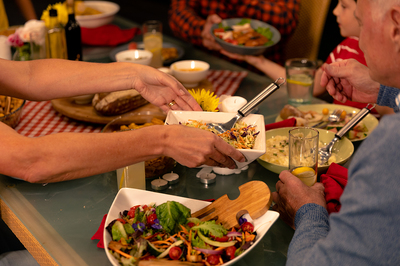
My loved one is coming home. Now what?
The return of a loved one after time in a residential treatment program is a joyous occasion. But it’s not without its share of uncertainty, too—including how the readjustment process will go for both of you. Knowing what to expect can be helpful when it comes to navigating this happy but often also challenging time. Here’s a closer look at some things to know about easing the transition while helping your loved one remain on track with their sober living goals.
An Ongoing Journey
The first thing to keep in mind when a loved one returns from rehab is that they are not “cured.” Addiction recovery is a journey requiring daily effort and attention. There is always potential for slips, slides, and missteps, and relapse is a common stop for many recovering addicts.
While this can be difficult to accept after coming so far, it’s also reality, and the more realistic you are about the process, the better you’ll be prepared for backslides that happen along the way. That said, there are some things you can do to help support your loved one’s health and wellbeing.
Laying the Groundwork
The Substance Abuse and Mental Health Services Administration (SAMHSA) identifies four major dimensions that support recovery:
- Health: Managing symptoms while making healthy and informed choices pertaining to physical and emotional health
- Home: Having a safe and stable living environment
- Purpose: Having the means and ability to participate in society and to carry on meaningful daily activities
- Community: Maintaining relationships and social networks providing support, hope, friendship, and love
SAMHSA proposes, “Recovery is characterized by continual growth and improvement in one’s health and wellness that may involve setbacks. Because setbacks are a natural part of life, resilience becomes a key component of recovery.” These four elements support resilience across multiple pathways.
Education, Information, and Self-Care

Something as seemingly simple as a shared family meal can go a long way toward providing a sense of stability and normalcy.
What’s one of the best ways to provide the support a loved one’s needs? Understand what they’re dealing with. Not all substance use disorders (SUDs) are the same. For example, alcoholism varies from opioid addiction. Learning more about your loved one’s specific addiction, as well as how it affects them when they’re under the influence, can help you not only be more informed, but also more empathetic and compassionate.
Substance abuse counselor and activist Carole Bennett, MA, also strongly recommends having a recovery plan in place. “A recovery plan is just that—a plan for ones in recovery to incorporate doable, realistic goals AND consequences for falling short of those goals,” she explains. This contract, which should be created together, provides critical structure while ensuring that everyone is on the same page.
One last thing to keep in mind? While your loved one’s return and recovery-in-process may take center stage, the best way to support someone to the best of your ability is to make sure you’re attending to your own health and wellness, too. As this can be a stressful time, setting aside time for self-care is critical to caregivers and other members of the support team. This also means continuing your own therapy. Even if your loved one is clean and sober now, the healing process is ongoing.
And remember, while your life has been affected by your loved one’s addiction, you are not the one ultimately responsible for recovery. Instead, focus on offering support when it’s needed while helping to create a healthy home environment which will be most conducive to recovery.
Harris House is a leading drug rehab center in St. Louis. If you or someone you love is struggling with addiction, a treatment program can make all the difference. Contact us today to learn about your options.







